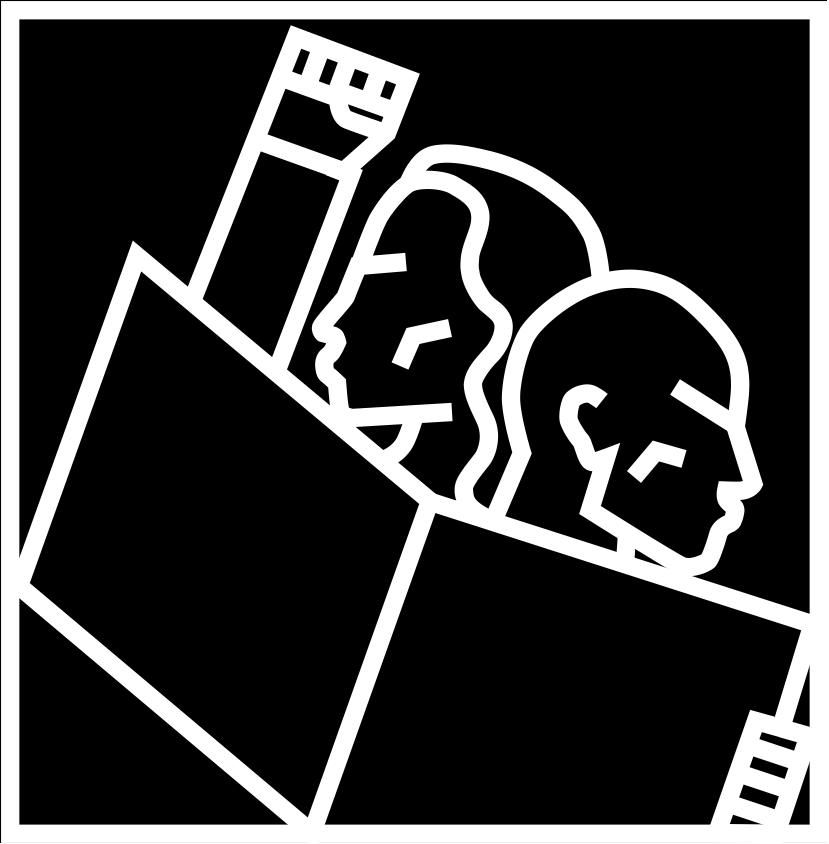THE VIOLENCE OF THE ‘VOICE’ RIGHTS NOT RECOGNITION
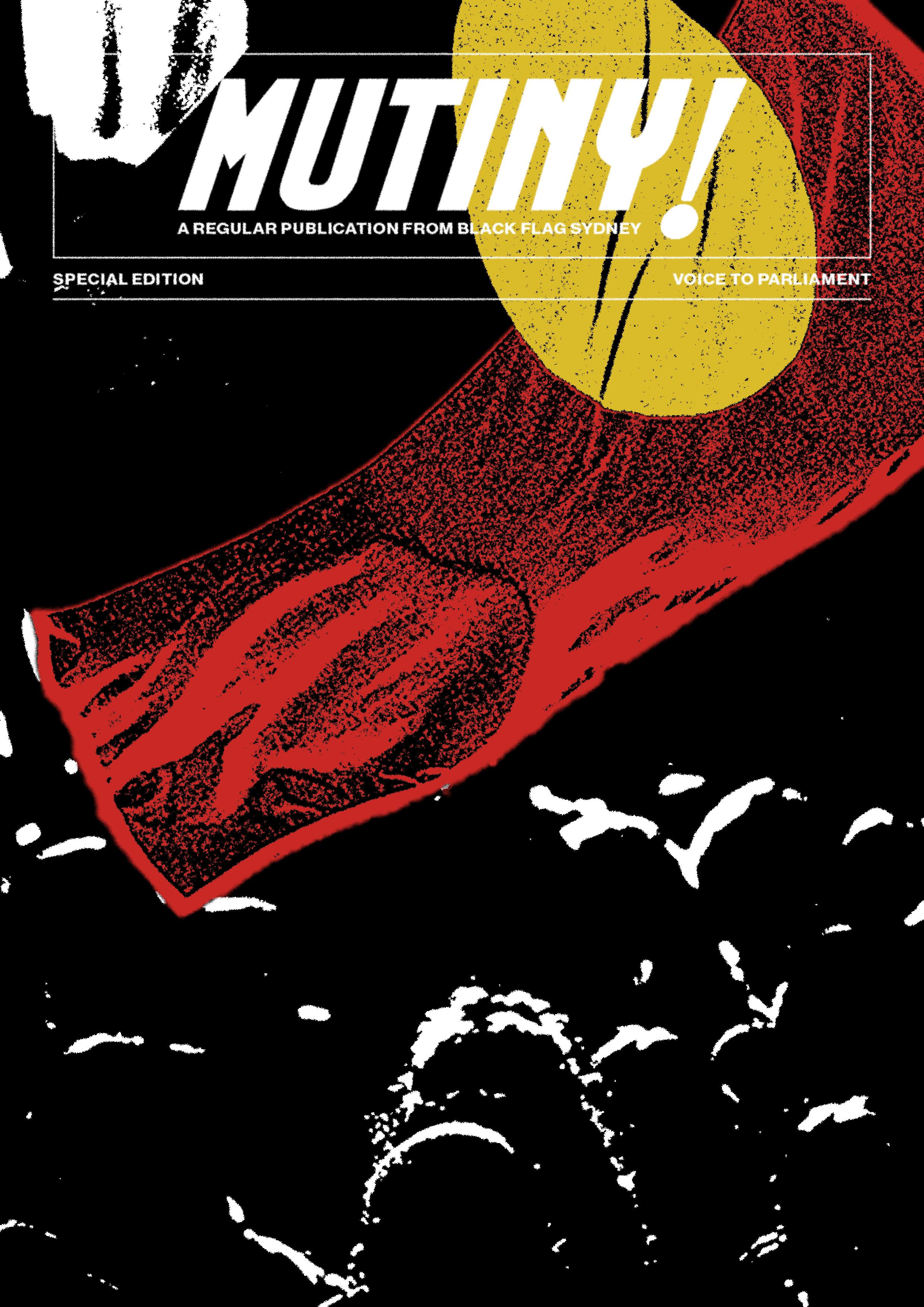


When discussing whether constitutional recognition of First Peoples is a positive step towards achieving selfdetermination, it is important to analyse the relationship of the Australian state with First Peoples and if there is even room for compatibility between the Australian state and First Nations sovereignty and self-determination. Absorbing Indigenous voices into the Australian state in an attempt to provide Indigenous sovereignty and self-determination is inherently contradictory. Since colonisation, the Australian state has been built on oppressing and exploiting Indigenous peoples and the capitalist imperatives that continue to govern the colonial state will never be able to provide Indigenous sovereignty or self-determination because the foundational principles motivating the state’s decisions are entirely inconsiderate and oppressive towards Indigenous peoples.
Two of the foundational factors underpinning the Australian state are colonialism and capitalism. An ongoing aspect of this capitalist state formation, introduced alongside colonisation, is land commodification.The European tradition of treating land as abstract, separate from humanity, served as a guide for justifying its domination and commodification. This dualist tendency (to view nature and society as separate) perfectly coincides with the capitalist Australian state that exists today. This is fundamentally incompatible with First Peoples’ relationship with land and continues to have practical impacts today. The Aboriginal concept of interconnectedness – the earth not only exists to provide for us, but people exist to sustain and care for the earth – is in stark philosophical contrast to the colonial and neoliberal concept of land cultivation; to prioritise utility of the earth to pursue perceived human benefit (resources or profit). Practical impacts of these ideological incompatibilities have continued to be prevalent from initial colonisation up until today. The first (and most obvious) way that these different philosophies of land use interfered with Indigenous sovereignty is the ‘terra nullius’ myth. The fact that Western settlers did not recognise Australian land as ‘cultivated’ was the justification for colonial settlement, and the initiation of First Peoples dispossession. The continued dispossession by colonial Australia of Indigenous peoples, by disregarding their relationship to land in order to ‘cultivate’ and maximise profit, culminates in many ways today. Australia’s pervasive mining industry is one example of this.
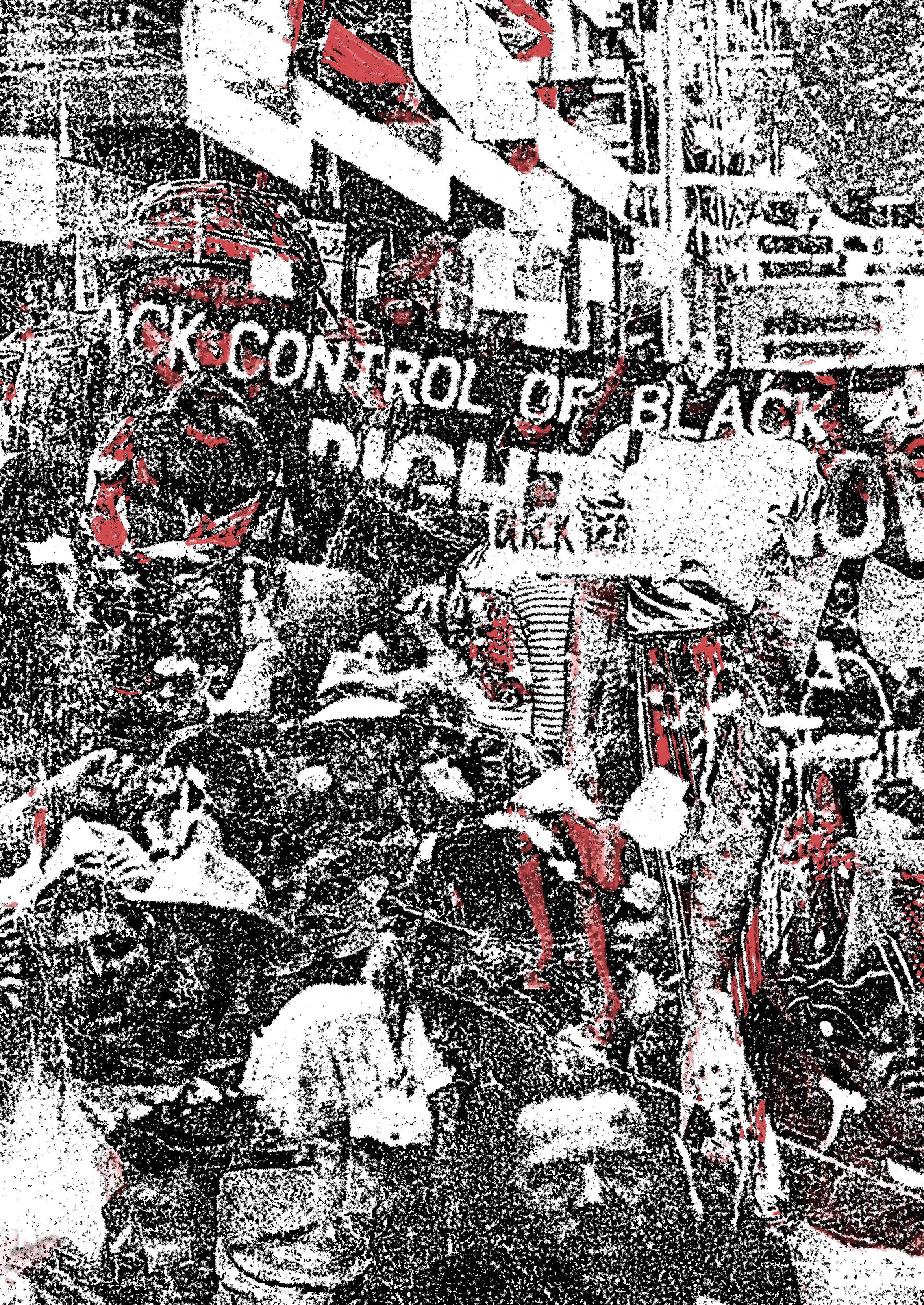
Australia has a notorious mining industry, ranking as second highest coal exporter globally. The mining industry alone provides a plethora of devastating examples of the Australian state’s perpetual disregard of Indigenous sovereignty. A recent blatant example of the disregard of Indigenous connection to land specifically by the mining industry is the destruction of the 46,000 year old Aboriginal site, Juukan Gorge rock shelters, by Rio Tinto, in order to
expand an iron ore mine. A third of Western Australia’s gross state product comes from mining (as do a significant amount of political donations). Since 2010, mining companies have applied to destroy or disturb more than 463 sites and the government has not refused any of the applications. Even under the façade of Aboriginal consultation or collaboration, the severe impacts of the mining industry have failed to be fully disclosed to Aboriginal communities and they continue to be disproportionately affected and their sacred connection to land vetoed in favour of cultivating capital. An even more recent example is the approval of the Santos Narrabri gas project. Despite advocacy of Gomeroi people against the Narrabri gas project, the Native Title Tribunal rejected the Gomeroi application in favour of approving the project. The Gomeroi people have been vocal about the devastating impact the project would have on the climate as well as the destruction of culturally significant land, including the Pilliga forest. Despite the dissent of traditional owners the government approved the project, citing it as ‘essential for economic reasons’. This statement perfectly exemplifies the Australian state’s – self professed – priorities of exploiting land for profit over respecting First Peoples’ sacred connection to land. This is also a direct example of the government attempting to evade accountability behind a mask of manufactured Indigenous consultation via the Native Title Tribune, while ignoring the grassroots opposition from First Peoples that are most impacted by the destruction of land.
Another way in which the Australian state asserts its incompatibility with Indigenous sovereignty is the criminal justice system. This stems from the fundamental values of the capitalist Australian state and how these values are historically and currently applied in the criminal justice system. A core tenet of capitalism is the concept of ‘individual responsibility’. This concept of individual responsibility is reflected in a neoliberal capitalist economic system, where those who economically flourish do so out of “hard work” and everyone else is considered a millionaire in waiting who just haven’t earned it yet. Where public amenities are privatised because people should earn their right to access them (if things were provided for free then people would all be lazy ‘dole-bludgers’), and people’s circumstances are supposedly a result of their own actions and not significantly impacted by a myriad of factors out of their control (e.g., access to education and health facilities, parents’ income, etc.). Despite the last 4 decades of growing tendency towards neoliberal frameworks in Australia, there are well documented proximal factors associated with Indigenous over-incarceration (financial strain, family dysfunction, mental illness, etc.).The lack of empathy in the punitive Australian criminal justice system reflects neoliberal
individualism through prioritising personal accountability rather than adequately holistically and systemically addressing the roots of these issues. This is fundamentally opposed to traditional Indigenous conceptions of criminal justice.
Aboriginal customary criminal law is primarily centred around the idea of payback. Its purpose is to achieve a restorative system, rather than a punitive one. One where the goal is to restore balance and maintain peace by ensuring the victim party is adequately compensated. Payback can take several forms, from imparting gifts to receiving physical punishment. While this aspect of customary law has come under particularly extensive scrutiny from people more familiar with Western carceral criminal justice, it is important to understand that Western values should not be the lens through which all cultures are viewed. For many people, incarceration is a far more harsh and physically violent form of punishment, with more long-term consequences and no aim of restoring balance or restitution to the victim party; punishment for punishment’s sake. Many Indigenous communities have strong adherence to traditional law and the alien concepts underpinning the ‘mainstream’ Australian criminal justice system are another barrier facing Indigenous people when dealing with the oppressive criminal justice system. On fundamental and practical levels the mainstream Australian criminal justice system is incompatible with traditional Aboriginal conceptions of criminal justice, yet the state continues to use the criminal justice system as a tool in its perpetual systemic genocide of First Peoples.
The Australian police forces were founded on violence. Colonial violence towards First Peoples. The police were introduced in Australia to expand colonial boundaries and extinguish Aboriginal resistance. The Australian police were formed to murder Indigenous people, and this has continued to be a significant part of their job. Since the Royal Commission into Aboriginal Deaths in Custody, 544 Indigenous people have died in police custody and not a single police officer has been charged. Beyond the fact that mainstream Australian and traditional Indigenous systems of justice are fundamentally incompatible, how could Indigenous sovereignty possibly be compatible with Australian state sovereignty, when the state has sanctioned oppression and murder of Indigenous people since colonial settlement? Discrimination and targeting of Indigenous people by police and the criminal justice system manifest in veiled and blatant ways. Making up only 3% of the national population but a third of the prison population, Indigenous people are faced with not only extensive external factors contributing to likelihood of incarceration (trauma, poverty, etc.) but also engrained systemic bias. This has culminated in them becoming disproportionately large targets of the justice system. First Peoples are more likely to come to the attention of police, be questioned by police and be arrested rather than receive summons. They are more likely to be remanded
in custody than get bail, more likely to plead guilty than go to trial, more likely to be convicted on trial and, if convicted, more likely to be imprisoned and less likely to get parole. To this day, none of the 339 recommendations made in the Royal Commission have adequately been implemented and rates of incarcerated Indigenous people continue to increase and preventable Indigenous deaths in custody continue to happen. Despite being directly handed thorough recommendations on how to empower First Peoples, minimise incarceration, and treat the traditional owners of Australia’s land with the bare minimum respect that is received by non-Indigenous people, the Australian state has refused to do these things.
Instead, the state has implemented further punitive and biassed measures towards Indigenous people. This extensive prejudice has been reflected in 2017 with the NSW Police’s surveillance utilising the ‘Suspect Targeting Management Plan’ (functioning as a ‘blacklist’) comprising of 54% Indigenous targets, despite Indigenous people making up only 3.4% of the NSW population. The Northern Territory intervention is another form of ineffective and oppressive paternalistic interference into Indigenous communities. Rather than effectively providing resources, education and health services to vulnerable Indigenous communities, the purpose of the intervention was to increase punitive action in Indigenous communities. Even if Indigenous people were to receive constitutional recognition or formal acknowledgement of sovereignty, the history of the distorted and violent treatment of First Peoples by the Australian criminal justice system would not be compensated for, nor would this treatment cease. The racist inception and continued operation of Australia’s criminal justice system are so deeply engrained that it is impossible for Indigenous sovereignty to completely exist while the Australian criminal justice system continues operating as it has.
The Australian state has demonstrated in many ways that it is not willing to facilitate real First Peoples sovereignty. No façade of Indigenous contribution to the decisions of the state can negate the fact that the primary motivations of the state will never allow for Indigenous self-determination. Neoliberal prioritisations of capital and individual responsibility are reflected in Australia’s mining industry and criminal justice system, which are just a minor glimpse into the many ways these values manifest in the functioning of the state. The state cannot provide Indigenous self-determination when it is foundationally built, and continues to operate on, the systemic oppression and abuse of First Peoples, in order to pursue the state’s own neoliberal interests. The colonial Australian state has perpetually shown that it is not only unwilling to make concessions in its own sovereignty or capital accumulation, but it will use a facade of Indigenous collaboration and consultative committees to approve violations of First Peoples sovereignty and justify the disregard of ongoing opposition from Indigenous communities.

The state cannot provide Indigenous self-determination when it is foundationally built, and continues to operate on, the systemic oppression and abuse of First Peoples, in order to pursue the state’s own neoliberal interests.
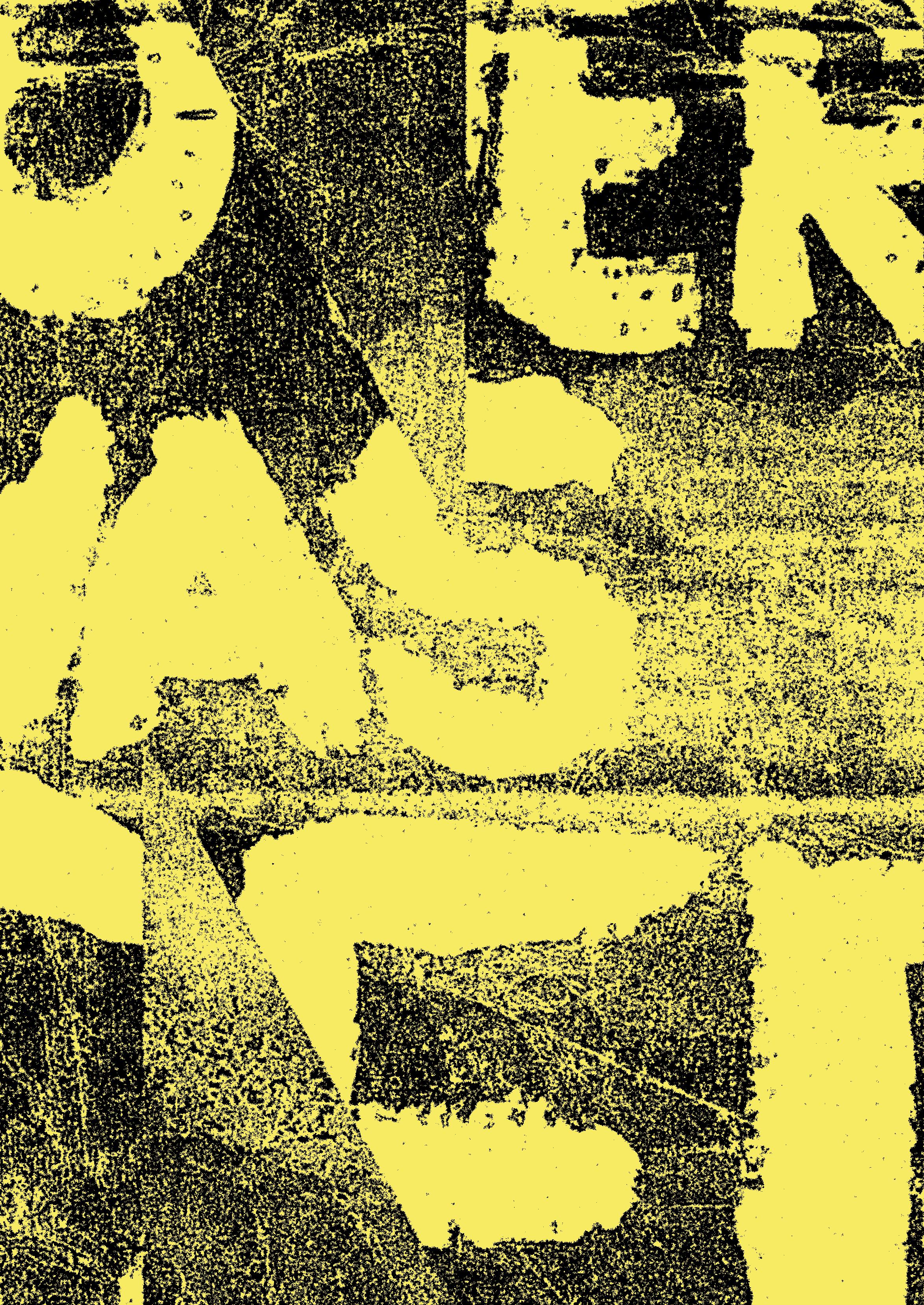
Constitutional recognition has its roots in the Howard-era, long before the Voice came to be. John Howard and his Liberal government exhibited a craving for culture wars that could stoke a stronger white Australian identity. This would range from border-force patriotism with the war on terror and the ‘children overboard’ refugee panic, to a procolonial nationalism based on false allegations about Blak paedophile rings, a revival of Australia Day and ANZAC Day, and history wars insisting that Australia was not built upon genocide and that this should not be taught in schools. One of his final nation building proposals was a promise of a referendum for constitutional recognition, in the hope of uniting Australia behind one national identity and quashing debate over treaties.
The referendum proposal floundered somewhat after Howard’s loss to Kevin Rudd in 2007, but Labor would collaborate with the Liberals in passing constitutional recognition in each state government and commissioned an inquiry. The inquiry resolved that any referendum must include bans on discrimination against Blak people, which the government ignored in favour of setting up a front group called ‘Recognise’ with the support of several corporations. Recognise would come to be protested by Blak militants after allegations of falsifying support for constitutional recognition amongst Blak people, and eventually Recognise lost momentum during the subsequent years under Tony Abbott’s Liberal government.
Concerned by the collapse of Recognise, Reconciliation Australia would try to rescue the constitutional recognition proposal through a convention near Uluru in 2017. The process started with invite-only regional ‘dialogues’, which were in fact largely apathetic toward Voice and recognition, if not openly hostile towards the proposals. These unrepresentative regional dialogues elected 60% of the delegates to the Uluru convention. The remaining 40% of delegates were appointed by the government and NGOs funded by Recognise. The convention was protested by left-wing delegates who declared the process corrupt, and released their own statement calling for treaties and sovereignty as an alternative to the Statement from the Heart working group’s demand for a binding Voice.
The Statement from the Heart working group’s submission for a binding Voice has been comprehensively ignored by the Labor party and ‘progressive’ capitalists, who have aligned behind a front group called ‘From the Heart’ which includes such staunch Indigenous allies as the Minerals Council of Australia. This group has insisted on a powerless advisory Voice in order to appeal to white
moderates, and to make declarations of unanimous Blak support for this proposal. The proposal as outlined gives the government of the day a say over how members of a Voice are elected (or not), ensures they have no further rights to communicate with the government than any citizen, and prohibits discussion by the Voice on issues that are deemed irrelevant like the fracking and mining of their land without their consent.
It is suggested by Labor politicians like Linda Burney that this Voice would be able to encourage the government to send more police into the Northern Territory to restrict Blak people from drinking, which invites concerns about how the Voice will be used by the government to justify racist decisions. The backing that the Voice has received from Labor’s corporate donors in the fossil fuel industry, who are currently in conflict with Blak people for access to their land, also raises alarm bells. And the degree to which this process has been manufactured by the ruling class does not bode well for how representative the Voice is intended to be in practice.
The only reasonable conclusion to be drawn from this sequence of events is that we should extend our solidarity to the left-wing critics of this process amongst the Blak community, and reject the idea that this referendum proposal is a genuine call for representation. We do not need to take political advice from Albanese, and instead we should seek our answers from those who fight for land rights embedded in treaties.
Blak peoples have resisted colonisation since the violent invasion of 1788, and have been clear at every conflict and protest since in the demand for land rights and selfdetermination. In 1988, 200 years following invasion, the Hawke Labor government committed to treaty making following the receipt of the Barunga Statement and that it would be completed by 1990. It has been 43 years since Labor made that promise, and like the Liberals they’ve continued to oversee the violation of every demand in the Barunga Statement.
The Barunga Statement outlined a proposal for selfdetermination through an end to police violence and child theft in favour of community justice, land rights and reparations, the return of ancestral belongings, a respect for culture, and support for their right to democratic self-governance. There have been many statements and formulations since that time, and most recently that’s included the 2022 Yuendumu Statement calling for defunding and disarmament of police in favour of funding
for services in the community. These statements and approaches by Blak activists have largely been resisted by the government which wishes to engage in treaty making on its own terms, or not at all.
After the Uluru Convention, from which the Statement from the Heart emerged, the left-wing delegates who walked out cohered around their own statement as the Walkout Collective. They have called for a truth telling process that reveals the trauma and injustices of Australian settlement followed by a treaty making process between different First Nations, and then the Australian government which may lead into a united republic. A number of these delegates and their supporters would end up entering the Blak Greens, who initiated their own campaign for Truth, Treaty, and Voice based on the ideas of the Walkout Collective, which was endorsed by the broader Greens membership and taken to the 2022 election as an alternative to Albanese’s proposal.
This politics was also expressed in the 2023 Invasion Day mass protests, which in Sydney called for a No vote in the referendum in alignment with the case for Truth and Treaty before Voice. The federal Greens leadership has since made an effort to quash and silence this with moderate MPs making efforts to leak to the media and undermine campaigning for treaties, suppressing documentation from the Blak Greens, and ultimately breach their own policy by shifting to an uncritical Yes to Albanese’s Voice proposal. Their Indigenous Affairs spokesperson, Lidia Thorpe, shortly left the party and it’s unclear what the next step is by advocates in the campaign as the date of the referendum slowly approaches.
While there are limits to the effectiveness of treaty making between an oppressed people and the nation state which oppresses them, the argument for Truth and Treaty before Voice constitutes a left-wing break from liberal approaches towards First Nations justice. It should not be dismissed. It is something we see as not just a principled rejection of a corrupt political project, but a staunch insistence that land rights and an end to police brutality and child theft are urgent demands that should not be delayed. It is an insistence that demands such as kicking Santos out of
the Pilliga must be met immediately. There can be nothing more principled than standing alongside Blak comrades in these struggles, and refusing to concede.
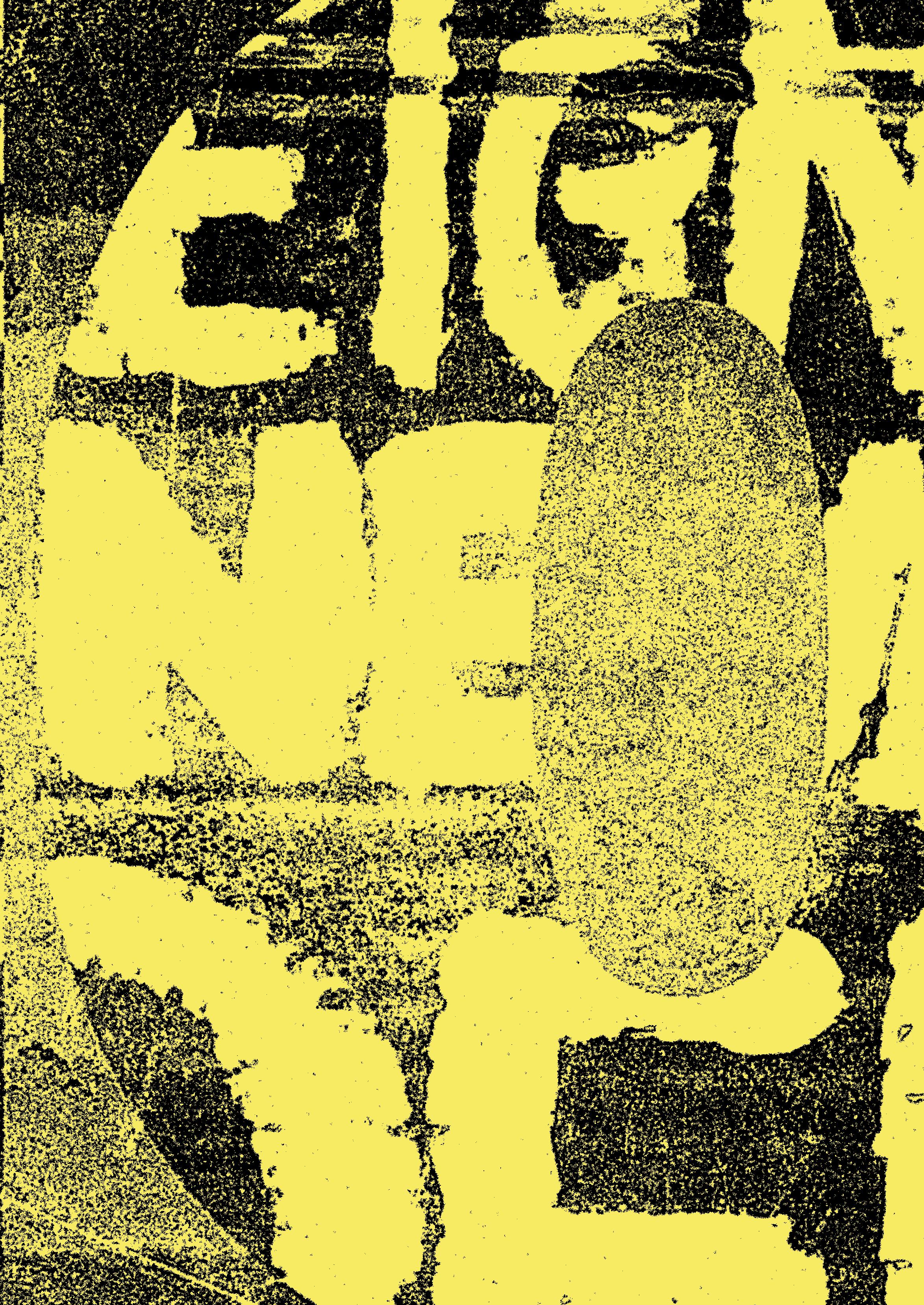
The liberal commentariat has been near orgiastic in their comparisons between the marriage equality postal survey and the Voice referendum, and have been desperately throwing themselves into the conversation with advice on why the campaign should be as small a target in messaging as possible. It seems Albanese is on the same page as he desperately assures the right of how useless the Voice will be at every turn, while the right itself is split between the delusional bigots who are convinced the Voice is a Blak dictatorship, and those who are entranced by the wonders of new ‘inclusive’ nationalism.
Many people are concerned that challenging the Voice in any way will bolster the confidence of those bigots convinced that a new Blak empire is arising through the referendum, and that they should not speak up. There is also the very real concern that the true face for a No campaign in Australia is Peter Dutton, Jacinta Price, and Pauline Hanson, and so any momentum for No will be a validation of their hard-right politics and will give an extra boost of confidence to every closet white supremacist with a gun. This is the shit sandwich that Albanese has given Blak people.
The real lesson from the marriage equality postal survey is that a victory for Yes at the ballot does not itself undermine the sense of confidence that bigots gain from being confirmed by their peers. The result of the postal survey was a victory, but the local win for No in western Sydney laid the basis for a confidently bigoted layer of hardright activists that most recently performed a gay bashing outside of a One Nation event. This was able to happen as the mainstream wing of the marriage equality campaign, sponsored as it was by big business, refused to engage with the scare mongering about trans rights and schools. They
While there are limits to the effectiveness of treaty making between an oppressed people and the nation state which oppresses them, the argument for Truth and Treaty before Voice constitutes a left-wing break from liberal approaches towards First Nations justice. It should not be dismissed. It is something we see as not just a principled rejection of a corrupt political project, but a staunch insistence that land rights and an end to police brutality and child theft are urgent demands that should not be delayed.
“ ”
made being a small target into a virtue, just as Albanese is attempting to do.
A small layer of revolutionaries quietly voting Yes in urban centres will not make a dent in the confidence of right-wing No voters who work in a prison in western Sydney or regional NSW; even if the referendum succeeds, these pockets of racism will thrive, emboldened by the bigots who use the national debate as an opportunity to spread fear and misinformation unchallenged by weak, small-target Yes campaigners. Fighting this will require us to actually stand with Blak militants in the streets who are raising the real questions of land rights and sovereignty – such as the Gomeroi people who have voted against fracking of their land. We must help to build the big targets that actually cut against these racist ideas, and to win them through united protest and struggle.
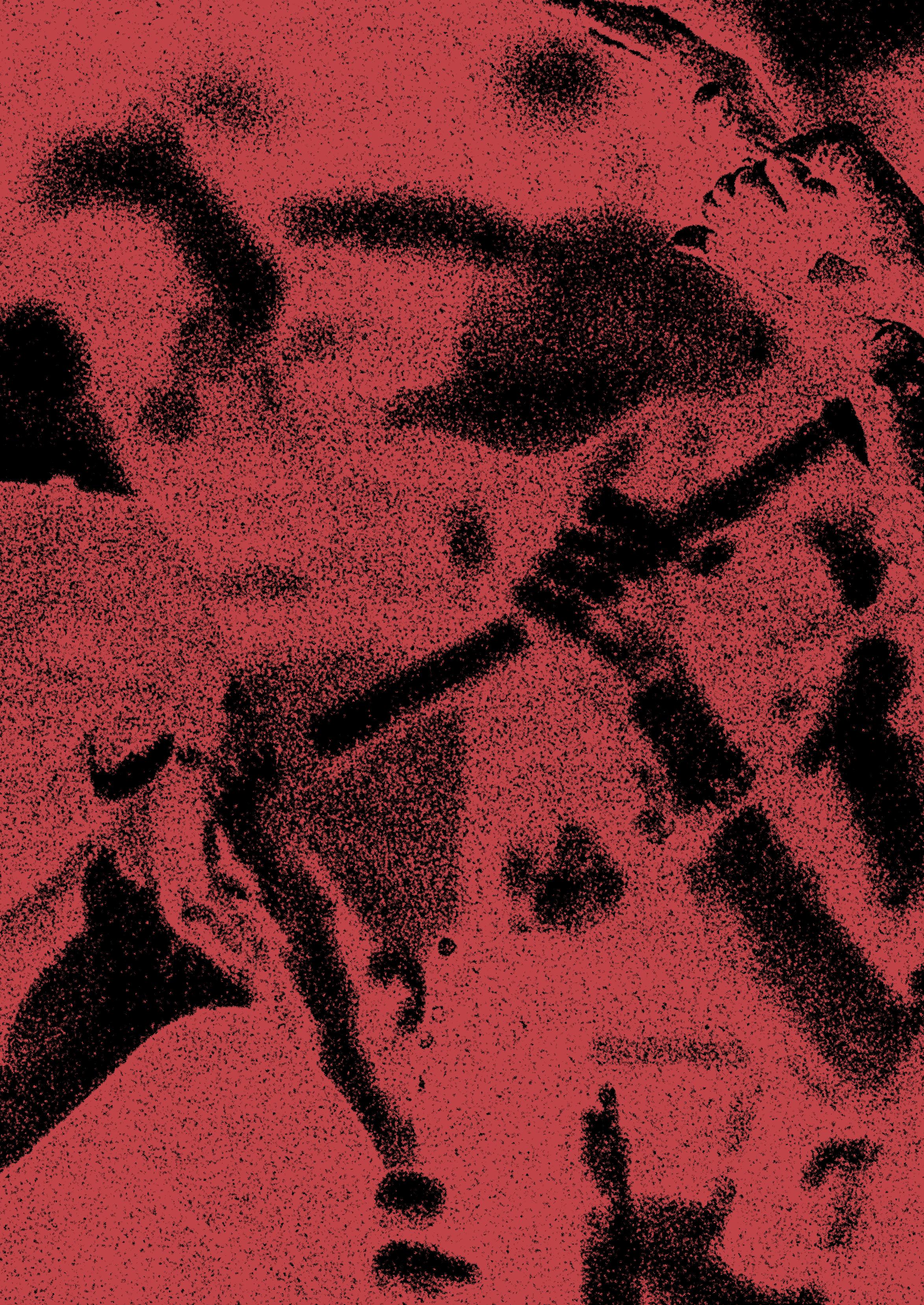
The other clear lesson that should be drawn out of comparing struggles is that we have a common enemy – the ruling class – who use similar strategies to keep us divided. Much like the labour movement, the social movements of the 60s and 70s represented a challenge that needed to be smothered, and ‘progressive’ capital has made a concerted effort to co-opt, divide, and disempower resistance.
The Business Council of Australia (BCA) was founded in 1983 to politically intervene in the new terrain of neoliberalism under Labor. The BCA represents the political will of the wealthiest companies in the country who control billions in assets, control the wages and conditions of countless workers, and are responsible for the bulk of corporate donations to the Labor, Liberal, and National parties in this country. BCA affiliates also populate the boards of many lobby groups and cultural events in the LGBTI and Aboriginal sectors with their CEOs, collectively inject millions into these projects while promoting their brands, and often claim these organisations as policy advocates to the political parties they also fund.
The most obvious of these for the queer community is the Sydney Gay and Lesbian Mardi Gras (SGLMG), which has its origins as a grassroots protest against police violence, but now receives millions in corporate donations with branding everywhere. The police take a role of prominence in each festival while companies like Qantas are celebrated, despite making use of slavery in the prison system and having cracked down on union campaigns for gender neutral staff uniforms. The various Pride parades across the country are estimated to receive over $6 million in corporate donations each year which makes them the subject of both protest and mockery by the queer community.
But this is simply the tip of the iceberg. Corporate scholarships for impoverished LGBTI youth are being run by the Pinnacle Foundation – which has BCA CEO Jennifer Westacott as lead patron – offering corporate mentors for recipients willing to sign gag clauses on criticising businesses. WearItPurple, a youth support network, works closely with the police and is funded by the Commonwealth Bank and Telstra. Minus18 is funded by Goldman Sachs and lululemon, an apparel company with near sweatshop labour practices. Rainbow Babies is funded by Commonwealth Bank and American Express. BlaQ is funded by Apple and
Calvin Klein. Inspired by Reconciliation Action Plans, ACON’s ‘Pride in Diversity’ program has been founded by the Australian Federal Police, the Department of Defence, KPMG, Lendlease, ING, IBM, and Goldman Sachs; though it is meant to advocate for good conditions for queer workers, it has union-busting legal firm Clayton Utz as its best-rated ‘inclusive’ workplace.
Most significantly, though, is the example of Equality Australia – an NGO sponsored by the ruling class intended to speak for a marginalised community. Equality Australia is the main consultant to the political class on what queer people think, yet it is run directly by CEOs, taking in over a million dollars of donations every year. Its board has been populated by the heads of WestPac, directors of Woolworths and the National party, owners of airports and property management companies, and even representatives from the Department of Corrections, and the controversial colleges at Sydney University. One of their next big ideas to offer Labor is a gay version of the Voice, an unelected ‘representative’ council, to reassure the government that our oppressive legal system is inclusive.
This trend is near universal. Of all the organisations purporting to represent queer people in Australia, only peerrun sex worker organisations as a rule seem to not be reliant on corporate funding. This landscape has created a circuit of inaction: unelected leaders of the movement, guided by corporate KPIs rather than grassroots community support, go begging to disinterested politicians who are funded by the same corporations, while big business manically promotes itself in queer cultural spaces despite undermining queer rights in the workplace.
Describing this process of corporate capture can seem almost conspiratorial until a quick look at management of the Blak community reveals how this was tested upon them first. These same corporations invented Reconciliation Action Plans (RAPs) as a substitute for genuine union demands like Blak jobs. Corporate CEOs sit on the boards of organisations like Reconciliation Australia, which was chaired by the CEO of Woodside while the corporation imposed a gas hub on the land of the Jabirr Jabirr and Goolarabooloo peoples. ‘Jawun’, founded by Noel Pearson in collaboration with Westpac to build links between Blak peoples and corporations, has a board mostly sourced from BCA-aligned corporations and has taken a prominent role in smothering dissent to fossil fuel extraction, land sales, the cultural appropriation of artefacts, and other issues. Jawun has lobbied against environmental protections so as to free up land to be sold off by Land Councils, and associated law firms like Allens played a key role in authoring the idea of constitutional recognition.
Pearson’s Jawun in particular has made an effort to present Native Title as an economic opportunity rather than a step toward sovereignty, encouraging the sale of land to big business as a way for local communities to empower themselves, while businesses supposedly create jobs for all in construction, coal, and gas. Jawun happily enables this process by offering corporate advisers from BCA-aligned companies to advise Land Councils on the best means by which to sell off and develop land. In 2004 Jawun helped to provide the Darkinjung Land Council with ‘assistance’ from Westpac, KPMG, CBA, NAB, Telstra, Woolworths Liquor Group and more during a sell off process. This is a process being rolled out across the country to change Blak people
from sovereigns into aspiring capitalists, or hyper-exploited workers.
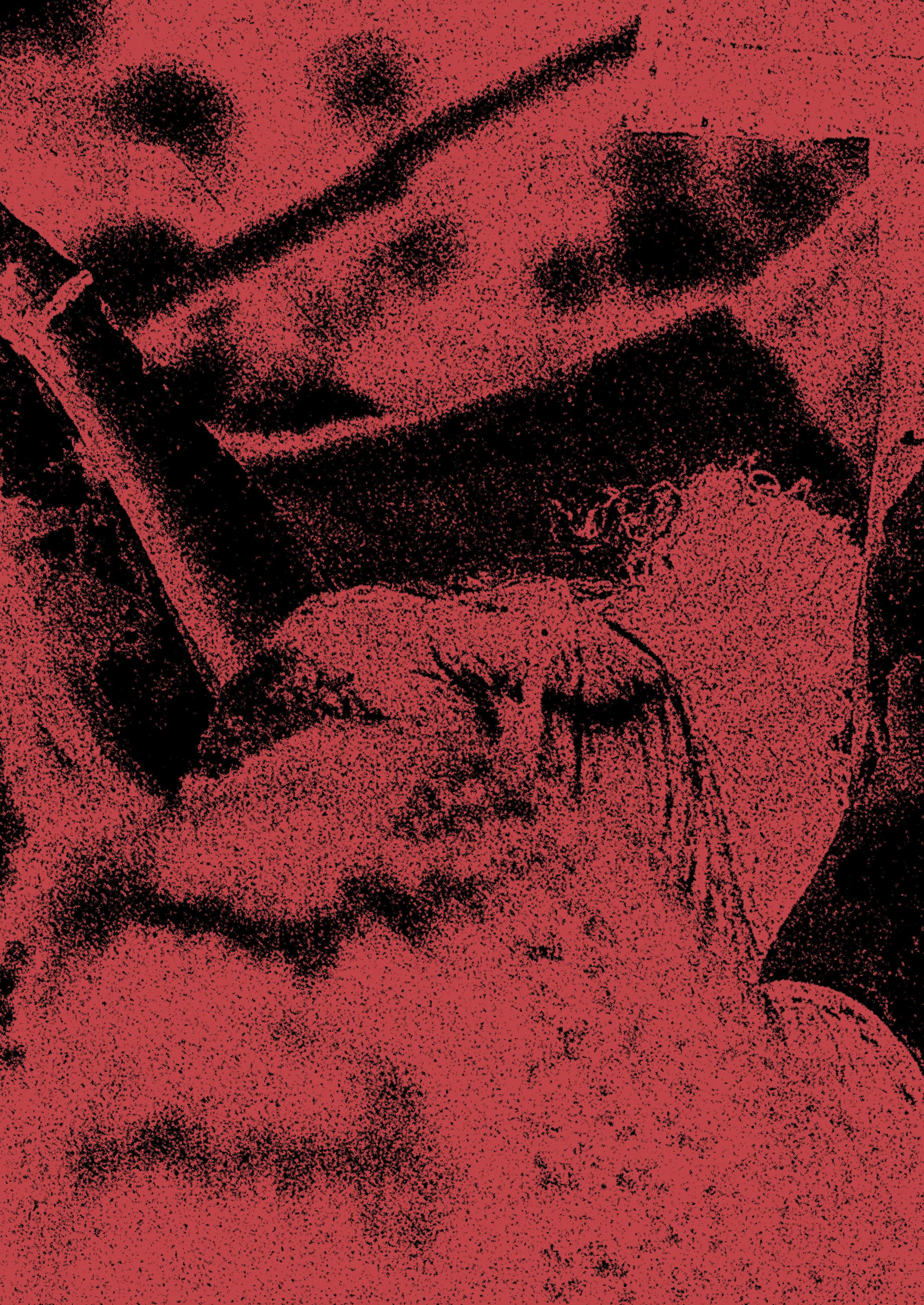
It is in this context that we need to understand the corporate strategy around Recognition and the Voice, and any comparisons with the marriage equality campaign. Marriage equality was a grassroots demand that gained traction through protests that corporations never supported. These corporations finally gave way, offering tepid support in the form of a Yes campaign that was so small a target that it helped transphobia fester in No voting electorates. Recognition, on the other hand, is an example of a corporate proposal that is being manufactured by the corporations themselves, and is being made a priority despite being consistently opposed by Blak militants and disregarded by Aboriginal communities seeking real material change to life in the colony. Recognition is not a step towards liberation, it is a move against Blak sovereignty by the corporations who try to silence, co-opt and exploit Blak people and queer people alike, and by a Labor party seeking to sell-out communities for political capital.
Our perspective is that as militants our focus should not be on door knocking to get out the vote alongside either
the white supremacists or the corporations, but on building struggle within the framework of Truth and Treaty before Voice as the only existing left-wing alternative. While we believe this is most logically expressed in a No vote in the referendum – a point which should not be veiled or ignored – this is perhaps the least important aspect of the campaign which should be focused squarely on struggles like the fight of the Gomeroi people against Santos. A major mobilisation around the core struggles of the Blak liberation movement is critical after the results of the referendum are confirmed, whether Yes or No. We will be organising with our Indigenous comrades to ensure such an action gets off the ground in as strong and as militant a manner as possible, to put a pin in the racist referendum discourse and build a real fight towards sovereignty.
An important element of the demands by left critics of the Voice is that truth telling is crucial, and that this involves accepting uncomfortable realities that we may not always enjoy hearing. Our belief is that there are many leftists who are critical of the Voice and accept that land rights should not be put on hold, but are terrified of being marginalised by white liberals. We cannot as a movement proceed forward in dealing with the uncomfortable truth of genocide if we are unwilling to deal with the discomfort of liberal confusion and disapproval.
Our belief is that there are many leftists who are critical of the Voice and accept that land rights should not be put on hold, but are terrified of being marginalised by white liberals. We cannot as a movement proceed forward in dealing with the uncomfortable truth of genocide if we are unwilling to deal with the discomfort of liberal confusion and disapproval.
We would like to acknowledge that the land on which we live, work, and organise is unceded Aboriginal land.
We pay our respects to the Gadigal people of the Eora nation, on whose lands Black Flag Sydney is based. We offer our absolute and unequivocal solidarity to all First Nations peoples fighting for liberation, here and overseas.
We stand together now and always.
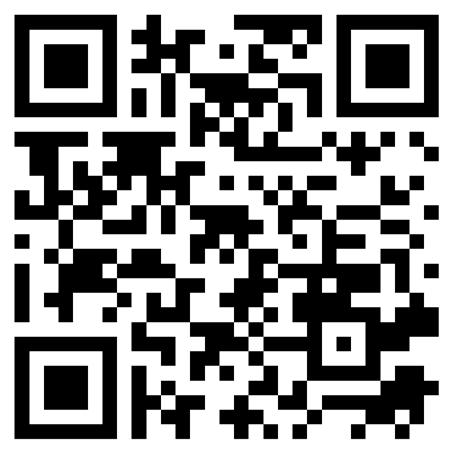
Black Flag Sydney is a collective of anarchist-communist workers who organise mainly on unceded Gadigal land.
Our ultimate goal is to build a society free of states, classes and currency, in order to achieve collective self- emancipation and universal freedom for all. Direct action is our method and worker self-management is our vision for today and the future.
We aim not only to dismantle systems of capitalist exploitation, but to build the capacity for people to freely and truly self-manage their workplaces, communities, and lives.

